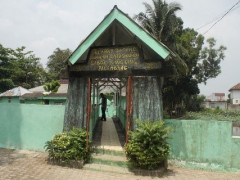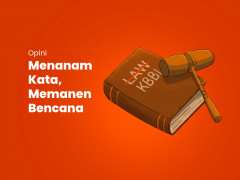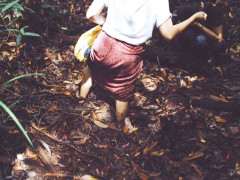Simbur Cahaya, the Eternal Local Wisdom
By Parliza Hendrawan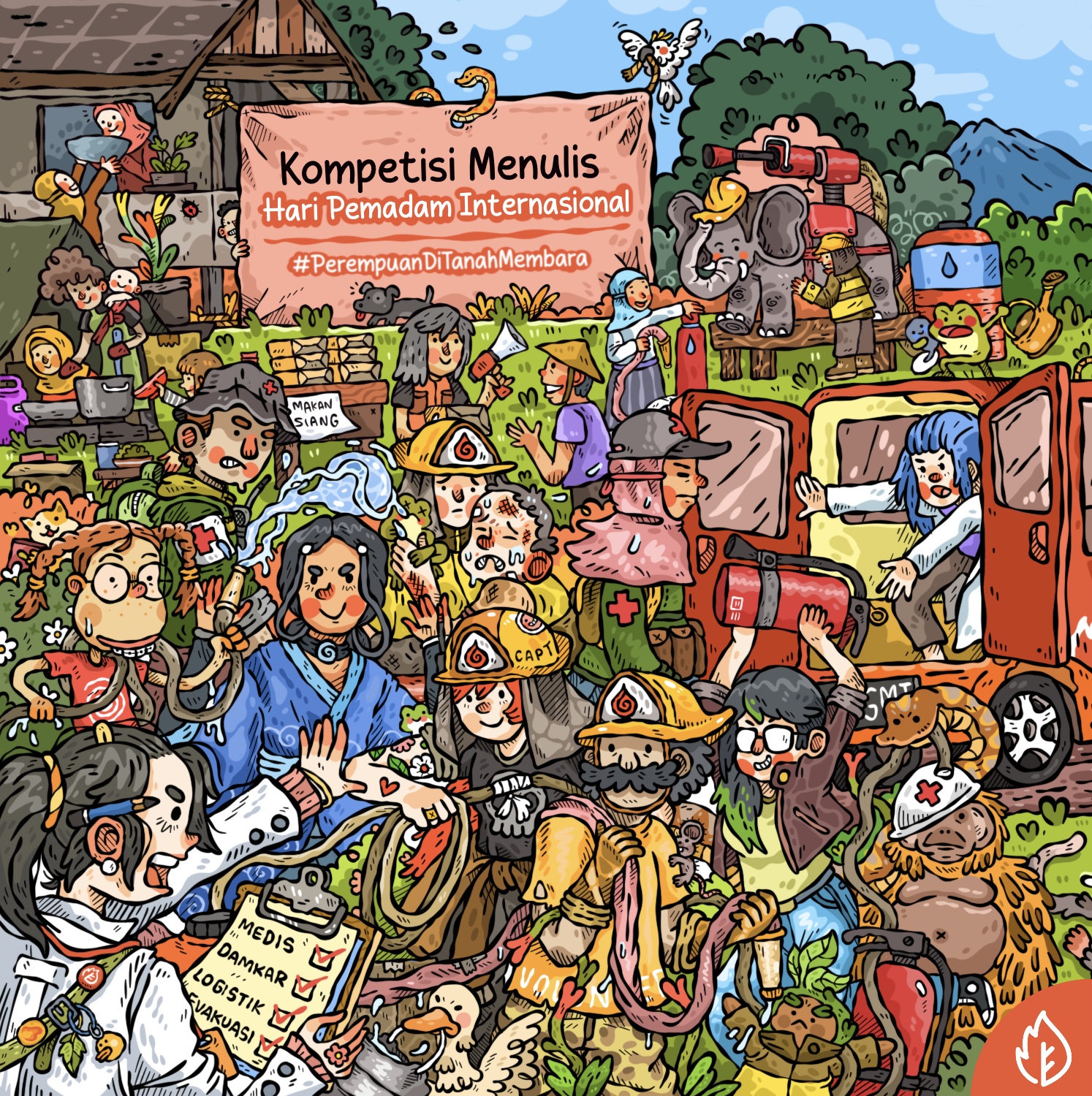
Short Story Competition "Woman from Burning Land"
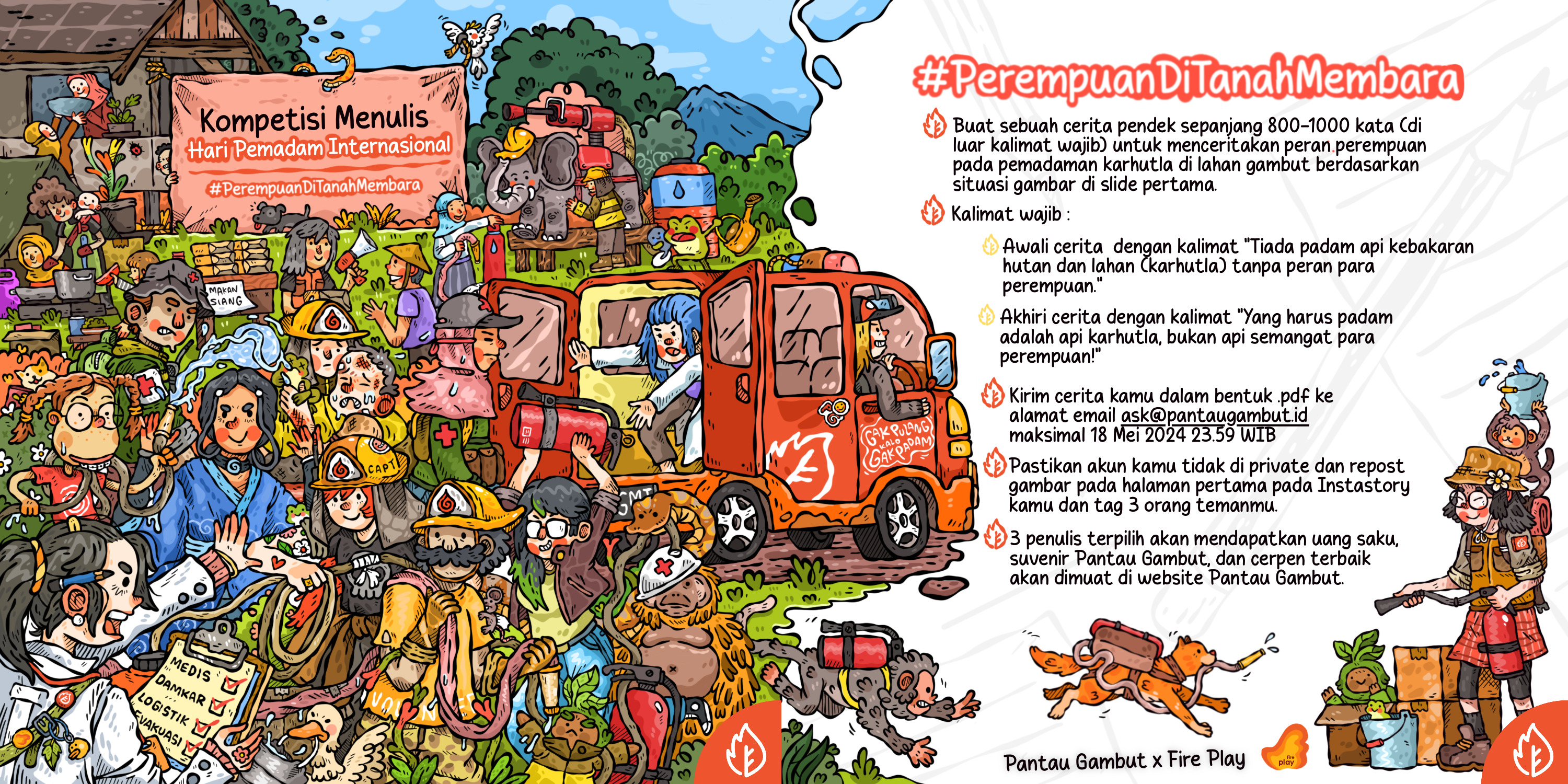
In conjunction with International Firefighters' Day, Pantau Gambut is organizing a short story competition with the theme "Women from Burning Land." In collaboration with Fire Play, we aim to shift the stigma of women as merely "supplementary" in every effort to extinguish forest and peatland fires. Without intervention, this stigma will have detrimental effects if it persists. Not only will the duties of firefighters in the field be hindered, but women in areas affected by forest and peatland fires will also be left powerless and dependent on men.
After several stages of judging, three short stories have been selected, with the best work authored by Hera Yulita.
Don’t Let Your Fish Burn Too Long
(Hera Yulita)
“There is no extinguishing forest and land fires without the role of women.” These are the words I most remember from my uncle. In our Malay dialect, "uwak" means uncle or a male sibling from either parent’s side. Uwak worked as a palm sap collector. Occasionally, if he had spare time and the pay was right, he would accept jobs as a brush cutter, clearing land for gardens or plots that were to be sold.
Uwak’s services were also needed when someone in our village passed away. He and a few others would go to the cemetery to perform the noble duty of digging graves. As a senior grave digger, my uncle was respected. His advice was heeded, and his permission sought for burial matters in the village cemetery. To me, Uwak was the family hero; a man of many talents. He worked on everything from handling coconuts in the garden to managing others' final resting places.
The sun has long since disappeared from view. The recent days have been unbearably uncomfortable. Can you imagine what it’s like when the land of Kalimantan, renowned for its abundant sunshine, is suddenly shrouded in clouds? Enveloped in suffocating haze, visibility is almost nonexistent. The distance one can see is severely reduced. Everything is obscured. Flights are canceled. Schools are closed. This has become a recurring pattern: last year, this year, and likely next year as well. I, along with the other residents of Kalimantan, can only offer understanding—a heart full of sympathy yet fraught with helplessness.
“Mamak is frustrated. The tap water is salty,” I said to you that afternoon in Long Ijah’s canteen. You remained silent, engrossed in your laptop. I continued to finish the nasi uduk in front of me. There was nearly no conversation between us that afternoon until you spoke up: “I’ll lead the action the day after tomorrow. We’ve been silent for too long. The government needs to be awakened. It’s been too long since our council members have been confronted by students. They’re too comfortable. It’s dangerous if no one reminds them. Are we going to wait until our forests are completely destroyed before there is action taken against the forest and land fires in Kalimantan?” you said, elaborating passionately.
In the distance, I could only stand silent. Watching you amidst the crowd of demonstrators, leading the rally, holding the megaphone, and shouting fervently. You are too sweet to be a protester. Your alma mater will soon be overshadowed by an idealism that may not reach its intended audience or draw the necessary attention.
Every time you went to the streets, I was always captivated by curiosity. What did you discuss with Uwak that made you so bold and critical today? What books did you read? What stories did Uwak tell you, dear?
I cling to a single memory—a snapshot of one afternoon when I first met you at Cik Amir’s house. I had glimpsed a different side of you then: quiet, polite—traits that would never suggest you were one of the most respected activists among the movement’s peers. I held you in high regard. Years later, these days, you occasionally share stories about the movement’s organization, people’s rights, societal inequities, environmental degradation, today’s bureaucracy, and much more.
I asked Mamak about Uwak’s unusual career choices. Why did he choose to be a coconut sap tapper, a bush cutter in the forest, and a grave digger? Mamak, still fuming over the salty tap water, recounted that afternoon.
“Uwak was actually a fire keeper. The jobs you mentioned were just side jobs, mere ways to pass the time.” I adjusted my chair closer to Mamak. “A fire keeper, Mother?” I asked, intrigued. Yes, Mamak confirmed. When he was younger, your uncle would always accompany your grandmother to the fields. He helped plant rice. From clearing the land to harvesting, Uwak was always involved.
"Do you know what the most painful wound Uwak has borne is? It is bearing the mistakes of others and sacrificing the safety of the woman he cherished the most. The field that was burned on that ill-fated day was set ablaze because the burner disregarded the head of the village's instructions. Burning to clear a new field requires calculation and adherence to taboos. It cannot and must not be done haphazardly. If Uwak escape from the encroaching flames and his subsequent survival was a mistake, then was your grandmother's attempt to extinguish the fire, only to be caught too late by the disaster, the right thing?"
"Do not dig too deep a hole for your grudge, lest your heart grows dark. Especially against those who set the field ablaze that day. He is also our kin. You are my child. There is no grudge in the meaning and prayer behind your name." These were your grandmother's words to Uwak, in her final breath that night. Whatever the meaning of his name, since that day, he no longer wished to use it. The name by which the villagers knew him was Bujang, the son of Layla, or now simply Uwak. From that day on, Uwak decided to become a fire keeper whenever someone cleared a field.
On a damp evening in July, three years ago, I finally mustered the courage to ask my cousin, “What do you and Uwak talk about that has made you so brave and critical today?” “Do you know why my name is Nyala?” she said. “It’s because the flame of life within our father, your uncle, has never been fully kindled. Uwak extinguished it long ago, turning the fire within him into something more melancholy than ash, ever since our grandmother passed away. His spirit was quenched even before he truly saw the light.”
“Don’t roast the fish too much, La. Your fire will go out!” Uncle shouted from the kitchen window. Meanwhile, behind the stove, I watched my cousin, Nyala, hurriedly remove some burning logs. Grilling fish was the only tradition in our family home. Grandfather loved grilled fish, and both Grandmother and Uwak were expert grillers. Even Mother admitted that his grilled fish tasted the best. It seemed that grilling fish was the only good memory Uwak had with fire.
“Don’t roast your fish for too long. Your fire will go out, La. Father doesn’t like overcooked fish. It loses its sweetness. You remember that, don’t you, La?” Once more, from behind the stove, Nyala stood still, letting the flames consume the fish. She softly replied to Uncle, “It’s been forty-seven years since Grandmother passed away, and Father returned alone. Only Grandmother’s silver hairpin remains.” From Nyala, I learned that Uwak had long been telling the same story to my cousin. “Don’t roast your fish for too long, or your fire will go out. Never let your fighting spirit die, or your life will be dark. What must be extinguished are the land fires, not the flames of the women’s spirit!”
-end
Everyone can play a role in the efforts to prevent and extinguish peatland fires. For us, it is the fire of the peatland fires that must be extinguished, not the flame of women's spirit!
To read the top 3 short stories, you can download them through the following document!
